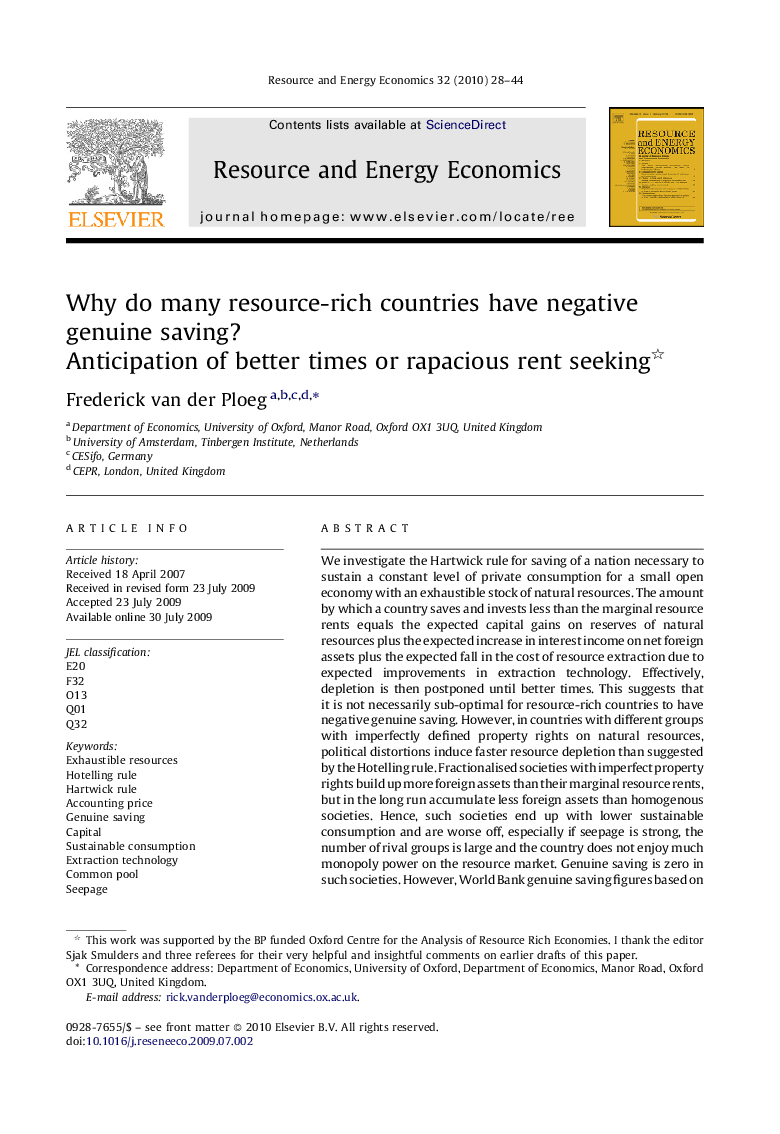| کد مقاله | کد نشریه | سال انتشار | مقاله انگلیسی | نسخه تمام متن |
|---|---|---|---|---|
| 985844 | 934688 | 2010 | 17 صفحه PDF | دانلود رایگان |

We investigate the Hartwick rule for saving of a nation necessary to sustain a constant level of private consumption for a small open economy with an exhaustible stock of natural resources. The amount by which a country saves and invests less than the marginal resource rents equals the expected capital gains on reserves of natural resources plus the expected increase in interest income on net foreign assets plus the expected fall in the cost of resource extraction due to expected improvements in extraction technology. Effectively, depletion is then postponed until better times. This suggests that it is not necessarily sub-optimal for resource-rich countries to have negative genuine saving. However, in countries with different groups with imperfectly defined property rights on natural resources, political distortions induce faster resource depletion than suggested by the Hotelling rule. Fractionalised societies with imperfect property rights build up more foreign assets than their marginal resource rents, but in the long run accumulate less foreign assets than homogenous societies. Hence, such societies end up with lower sustainable consumption and are worse off, especially if seepage is strong, the number of rival groups is large and the country does not enjoy much monopoly power on the resource market. Genuine saving is zero in such societies. However, World Bank genuine saving figures based on market rather than accounting prices will be negative, albeit less so in more fractionalised societies with less secure property rights.
Journal: Resource and Energy Economics - Volume 32, Issue 1, January 2010, Pages 28–44